On Tuesday evening January 16 I received word that Thornton James "Pookie" Hudson had passed away after a valiant battle against thymus cancer. For music purists and fans of vocal harmony groups who resist allowing Doo Wop to be relegated to America’s cultural margins, the loss is meaningful and symbolizes the passing of a true American cultural icon.
In the 1950s and early 60s, urban youth from Pittsburgh to Paducah gathered under city streetlights on balmy summer evenings to harmonize amidst the neighborhood’s energetic bustle. For any of these groups, one signature song in particular began with the lowest voice booming out a version of the great Gerald Gregory’s quintessential bass line – five universally familiar notes, doht – doh – doht – doht – doht, followed by a lead tenor and chorus echoing the sweet refrain, “Good night, sweetheart, well it’s time to go…” To that early generation, those words signaled lights out…gig’s up…party’s over…mama says come on home. In every street-corner group, the lead singer mimicked one voice – the enormously popular performer known to legions of adoring fans, especially in the African American community, simply as Pookie.
James Pookie Hudson was among my early musical idols – a unique song stylist during the halcyon days of Rhythm and Blues. Aaron Neville, Al Jarreau, Smokey Robinson, and countless balladeers from the Doo-Wop era have affirmed Pookie's influence on their music. As lead singer of the legendary Spaniels, Pookie Hudson was peerless. During the 50s and 60s Pookie’s group routinely played to enthusiastic sold-out audiences at New York’s Apollo, Chicago’s Regal, Washington DC’s Howard, and other major concert halls in Baltimore, Detroit, Philadelphia, Los Angeles, and Europe. The Spaniels were among the earliest Rhythm and Blues vocal groups to appear on Dick Clark's popular nationally syndicated television show, American Bandstand.
In his intriguing biography, Good Night Sweetheart Good Night, renown journalist and social commentator Richard G. Carter chronicles the group’s emergence from the gritty blue-collar neighborhoods of Gary where they won the fabled Gary Roosevelt Talent Show, a forum which was to also prove pivotal for other Gary exports, including Avery Brooks, Denice Williams, and the Jackson Five. Many of these performers went on to become media darlings on radio and television with the aid of mega-labels like Motown’s potent promotions on a radio-friendly hit machine in the post-payola era, while Pookie and the Spaniels became victims of the payola system by their refusal to acquiesce to it, and therefore received far less national airplay than they merited. Nevertheless, Pookie’s silky tenor vibrato pervaded the era of male group leads on the segregated radio airwaves with recordings like “I Know,” “Stormy Weather,” and the chart buster "Good Night Sweetheart,” all perenniel favorites in America's urban centers, but recordings that never gained the tremendous commercial success that many critics today believe they deserved.
I first met Pookie when I was 16 years old. He and his business manager made a surprise visit to my home in East Chicago at the urging of my cousin, who was then his wife. Pookie listened to my high school quartet and, at our prodding, he graciously rendered a stirring, Gospel-tinged acappella version of “Peace of Mind” in our living room. With his face nestled against the wall, Pookie’s rich tenor vibrato, clear as a bell, echoed throughout the room, shimmering and soaring effortlessly with an emotional quality that spoke soul to soul. That day he gave me a prized copy of his latest release, a lushly arranged pop/spiritual ballad with a moral called “Meek Man,” recorded on the fledgling Philadelphia-based Neptune label. Sadly, that record made a meager showing commercially but it remains among my favorites of Pookie’s songs.
Over the years I talked to Pookie by telephone occasionally when he was in California, Gary, or the District of Columbia, where he maintained loyal fan bases. I made a point to take in his Oldies and Doo-Wop performances in the New York City area. I attended the triumphant comeback appearance of Pookie Hudson and the Spaniels at a Rhythm and Blues Revival Show at the Apollo in August 1991 where, after a 30-year hiatus, Pookie’s acapella rendition of “Danny Boy” led to the evening’s only encore performance. Pookie became a mainstay to millions of “old schoolers,” as he was seen frequently on PBS telethon fundraisers, which have discovered the lucrative baby boomer-plus market. Those shows often ended with Pookie’s “Good Night, Sweetheart” as a finale.
Pookie is on record as stating that part of the reason the Spaniels were not played as much on radio stations along the North Eastern corridor’s cities as on radio stations in other areas of the country is that he refused to allow a certain powerful on-air radio Czar and popular disc jockey of the era to sign on as co-publisher of songs he had written, a common but unlawful practice during the payola period of the 1950s. Pookie had many struggles over the years but he refused to fall prey to the economic enslavement that engulfed so many talented Black artist/writers who never saw a dime in royalties in spite of so called sweetheart deals. Such a compromise would ensure that the coauthor/publisher disc jockey would be entitled to a percentage of the songwriter’s royalties in perpetuity. In later years Pookie did pursue a lawsuit against the producers of the blockbuster movie “Three Men and a Baby,” starring Tom Seleck, in which Pookie’s song “Good Night Sweetheart” was illegally featured, constituting copyright infringement. The song was covered by a number of groups, including the popular McGuire Sisters in 1954 whose rendition achieved gold-record status, the highest accolade of the day. The song was covered by a number of groups, including the popular McGuire Sisters in 1954 whose rendition achieved gold-record status, the highest accolade of the day. It was later recorded on the soundtracks of other movies, including “American Graffiti,” and on television, including in a Dodge commercial.Yet it was not until the 1990’s that Pookie began receiving royalties for his song.
I last saw Pookie perform at the Queens Borough Community College on October 21, 2005 in a show billed as a tribute to Pookie. He said he felt good, and that the prostate cancer he had so courageously battled for several years was in remission. In a truly star-studded lineup that included the Teenagers, Johnny Maestro and the Brooklyn Bridge, the Orioles, the Harp Tones, the Flamingoes, the Chantels, Speedo and the Cadillacs, Earl Lewis and the Channels, and other great groups, Pookie and the Spaniels closed the show. The house that night, as it had so many times before, belonged to Pookie Hudson and the Spaniels.
Pookie will be sorely missed by friends, fans, and loved ones but, thank God, his songs will live on forever. Now finally, Pookie, the “Peace of Mind” about which you so movingly sang is yours, and neither you nor your timeless, beautiful songs shall be forgotten.
Friday, July 6, 2007
Subscribe to:
Post Comments (Atom)

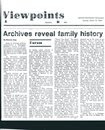





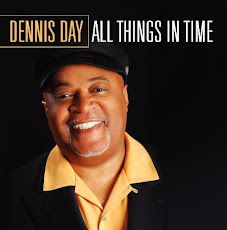
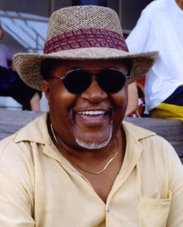
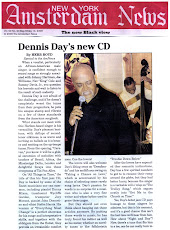
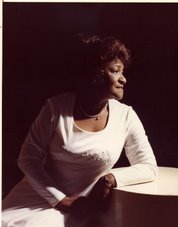
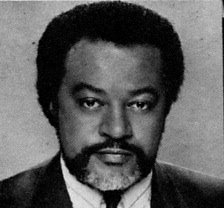
No comments:
Post a Comment